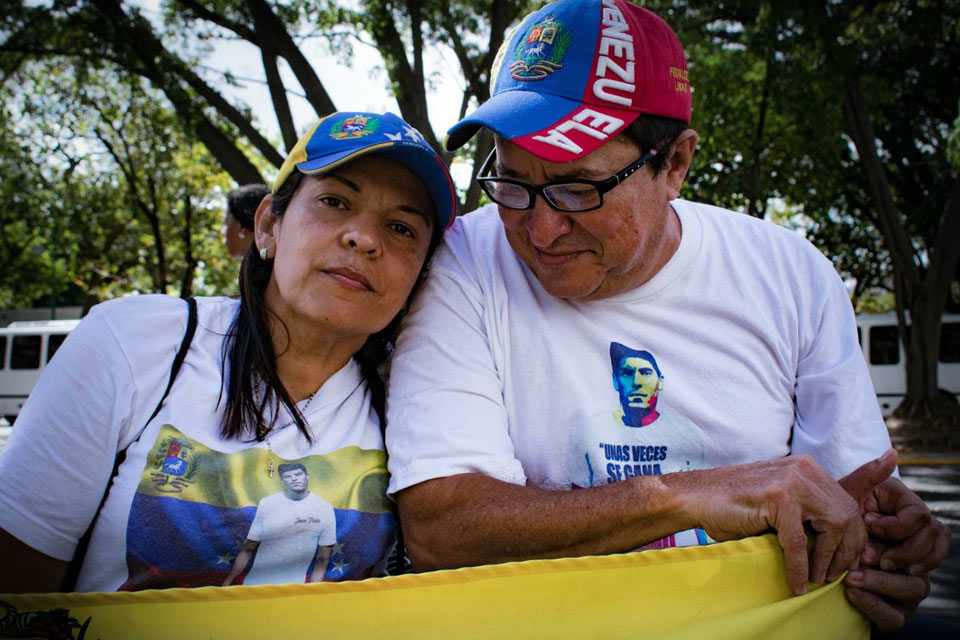The voting software counts the votes of each candidate and party. There is no way to attack the system via the internet at the time of the tally. These are some of the findings of a team of 10 renowned academics who carried out a comprehensive audit of the automated voting system for more than six weeks. The results of the process are satisfactory
From a technical point of view, the main features that an automated voting system must have are the confidentiality and transparency of the vote, the reliability of the results, and the security of the process, which includes ensuring that the voting machines cannot connect with external parties during the voting process and before the tally and with the fingerprint capturing device, neither by internet no other means.
No flaws in the Venezuelan automated voting system were found that could cast doubts on any of these main features, according to Robinson Rivas, master in Computer Science and director of the School of Computing at Universidad Central de Venezuela.
All these things were verified in a comprehensive audit of the automated voting system that, in an unprecedented way, took place during more than six weeks of continuous work between June and July 2021.
The 10 academic auditors held a press conference on July 26 to share the findings of this scientific-technical review. Emilio Hernández, a doctor in computer science from the University of Southampton in England and professor emeritus at the Simón Bolívar University, served as a spokesperson alongside Robinson Rivas.
Based on their comments to the press, we prepared the following list of 10 questions and answers about the comprehensive audit of the automated voting system in Venezuela:
1. Is it a pluralistic audit team?
It is certainly pluralistic because it is the result of an appointment by consensus between actors of the Electoral Power from different leanings. All members of the team are known for their high professionalism and proven knowledge in the field.
- Emilio Hernández: Doctor of Computer Science from the University of Southampton in England, and professor emeritus at the Simón Bolívar University.
- Robinson Rivas: MS in Computer Science from the Simón Bolívar University. Director of the School of Computer Science at Universidad Central de Venezuela.
- Joali Moreno: Doctor of Computer Science from Universidad Central de Venezuela, and professor of the School of Computer Science since 2003.
- Alfredo Marcano: MS in Instrumentation from Universidad Central de Venezuela. Marcano is a physicist who graduated from Universidad Central de Venezuela, where he also worked as a professor.
- Jorge Ernesto Rodríguez: Doctor of Software from the Polytechnic University of Catalonia. Professor at Universidad de Carabobo with 26 years of teaching experience.
- Antonio Russoniello: MS in Computer Science from Universidad Central de Venezuela. Professor at Universidad Central de Venezuela and invited professor at Universidad Bicentenaria de Aragua.
- Juan Carlos Villegas: Doctor of Science and professor at Universidad de Los Andes. Professor of Modern Physics and Optics, Thermodynamics, and Advanced Statistical Mechanics.
- Carlos Acosta-León: Doctor of Computer Science from the University of Edinburgh. Specialist in computer forensics and cybersecurity management. Professor at Universidad Central de Venezuela.
- Víctor Theoktisto Costa: Doctor of Computer Science and associate researcher at the Polytechnic University of Catalonia, Spain. Professor at Simón Bolívar University.
- Eugenio Scalise: Doctor of Computer Science and professor at Universidad Central de Venezuela. Director of the postgraduate course in Computer Science at Universidad Central de Venezuela.
2. What is an automated voting system?
Hernández explained that automated voting in Venezuela was created in 2004 to avoid the irregularities of former manual voting systems, give a precise vote count based on information, transmission, and computer systems, and allow delivering the results on the same day of the election, which contributed to social peace.
The voting system is called comprehensive because it consists of many parts. Whenever a voter exercises his right to vote on a machine, the device’s software enters in communication with another at the counting center through a network provided by telecom companies. Some will communicate wirelessly by satellite and others by telephone, Rivas explained.
But, before a voter even gets to the screen to cast a vote, a series of processes have been set in motion that guarantee that the device has been configured correctly.
The system is not only the software but also the infrastructure, hardware, platform, transmission systems, procedures, and other vital elements for the fulfillment of its purpose.
The auditors had the opportunity to thoroughly review each of the elements of the comprehensive system.
3. What is the main conclusion of the audit?
The automated voting system fully complies with the objectives of turning over a precise count and doing it as quickly as possible, while guaranteeing the confidentiality of the vote so nobody knows who you voted for. The system also complies with the objective of guaranteeing to a very high degree (almost 100%) that no identity theft occurs in the process, among other important objectives that such a system must meet, Hernández said.
“The software, the hardware, and the transmission systems have been designed to ensure over compliance with their objectives; imagine that you use bulletproof glass to protect your house …Well, in this case, most of the system has not one but three or four layers of bulletproof glass”.
Hernández listed some of the elements that make up this “highly robust, available, and performant” system:
-The security systems, which have the capacity to transmit data to two different national counting centers if one of them fails.
-The guarantee of redundancy, or the possibility of establishing communication through dark fiber systems.
-Alternate protocols in the case that the transmission from the voting machines cannot be performed conventionally.
4. What do we know about the software?
The auditors declared that the software meets all the objectives and requirements necessary for a successful election and the delivery of results in the shortest time possible.
The software is divided into two main modules: one in the voting machine and another in the counting center. The auditors reviewed and tested both of them, as well as their source code.
This updated software is based on the software used in the 2020 parliamentary elections. “We have not detected any irregularity in the base software,” Rivas explained.
The auditors made suggestions to “minimize the possibility” of having any government official at any level make changes to the results or electoral alliances through irregular channels. “Such a thing is not allowed by the software, and the less freedom the software offers for irregular intervention, the more robust it will be,” Rivas said.
5. Will the audited software be on the voting machines in the November elections or is there an opportunity to make modifications?
The system uses internationally recognized computing technologies to ensure that the software has not been altered and that it is the same the experts have reviewed. The team of auditors was able to verify that the software of the Venezuelan automated voting system does indeed meet these characteristics. “These technologies offer the technical guarantee to ensure that the software running in each machine is the same software subjected to the audit,” Rivas explained.

6. What do we know about the hash?
The hash is a kind of signature that is made to the software. For this, an algorithm is performed on data to produce a complex code called a hash. If any part of the code is altered (imagine that you have the entire Bible and remove one period), the generated code will be different.
This technology is used in such a way that, whenever an auditor validates the software, he can come back at any time in the future and find out whether the software has been changed. If the code remains the same, it means that the software has not been modified.
Every time a new improvement is done to the system (that is, an improvement that does not change the essence of the software), the previous version is compared with the new one after the improvement. This ensures that the software has been the same that the auditor has evaluated. The hash is registered in the minutes of the audits, which are publicly available on the website of the National Electoral Council (CNE).
7. Did the team check things that were not planned at the beginning of the audit?
Yes. The auditors stated that they had leeway on how to conduct the tests. They mentioned three examples:
-At first, the assessment of the transmission infrastructure was not in the plan. The auditors made a request and a detailed review of the transmission infrastructure together with teams from the CNE and the national public phone company. This way they were able to collect more information on how the transmission is made and ensure that the system has a backup in the case a link fails at some point. They also confirmed that the platform cannot connect to the internet. All these facts were listed by Joali Moreno Pinto, Doctor of Computer Sciences from Universidad Central de Venezuela.
Also, the auditors requested access to the machine production system, which had not been granted as of July 26.
-The comprehensive audit began with a proposal for a plan of activities, in which the experts had the opportunity to change the way of conducting some of the tests, said Dr. Moreno at the press conference.
-During the audit of the voting machines software, the auditors also asked to begin the test of the communication with the counting center, which they were allowed to do.
8. Did the auditors have contact with the representatives of the political parties?
Fortunately, they did not, because the work of these 10 experts was from a technical and academic point of view. None of them represent political parties but the Venezuelan universities where they work.
The auditors also met with the European Union exploratory mission that visited Venezuela in July. The auditors explained the system and exchanged questions with the representatives, said auditor Antonio Russoniello (UCV).
9. What are the auditors’ recommendations to the CNE?
No system is perfect and there will always be room for improvement, the spokesmen clarified. The system works fine as it is, but throughout the six weeks of the comprehensive audit, the academics made minor observations and suggestions about the ways to strengthen the security and reliability of some processes that remain manual in terms of elections. “The fewer processes depending on the authority of someone at an institution, the more reliable the system will be for everyone.”
The recommendations made at the time were public because the whole audit was broadcast live via streaming through the CNE channel. CNE technicians took note of these recommendations, some of which involved minor changes that could be fixed in a short time. Others do require a software certification that cannot be done overnight.
In the long term, most auditors recommend a progressive migration to free software for a higher level of transparency. “But not having free software does not compromise the current system,” Hernández clarified.
Another recommendation is to consider the possibility of developing a system that allows to speed up software verification or make the process easier, such as the use of virtual machines. “It is just a suggestion, which does not detract from the current software in any way”, Rivas clarified.
As an innovation, the auditors also suggested the possibility of printing QR codes on records that are issued at the end of the election day to provide official and authentic information on the results in each voting machine.
“If all citizens can see what is happening in each one of the roughly 30,000 machines used in elections in the country, the level of confidence in the electoral system will increase,” Rivas said.
The recommendations and the general report of the comprehensive audit will be contained in a final report that the auditors will deliver to the CNE. Academics want the technical details of the system to be widely known inside and outside of Venezuela.
10. What does an audit mean at this point in the electoral process?
The audit was conducted before the electoral campaign and even before we knew the candidates or their place on the screen, spokesmen said.
This is fundamental for confidence building because the voting software acts generically and independent from the candidates that are going to participate. “At this point, we don’t know the order of the candidates’ cards on the screen… The software counts the votes of each theoretical candidate… but we do not know who they are; this means there is no way to anticipate a possible fraud”, Hernández affirmed.
As a closing remark, we remind the reader that this comprehensive audit represents an unprecedented electoral guarantee that adds up to the 14 ordinary audits that are usually made to specific aspects of the electoral processes in their different phases, which are conducted by auditors appointed by the political actors taking part in the election.
The Venezuelan Observatory on Elections welcomes the initiative by the CNE board of directors of developing a comprehensive audit of the automated voting system, and we insist on the fact that the reliability of the audits, as well as the entire process, largely lies in the supervision by plural and heterogeneous observers.
Translated by José Rafael Medina




